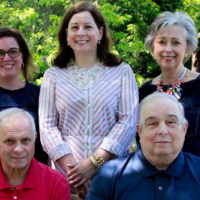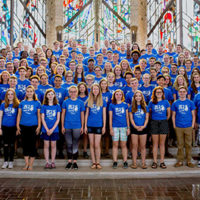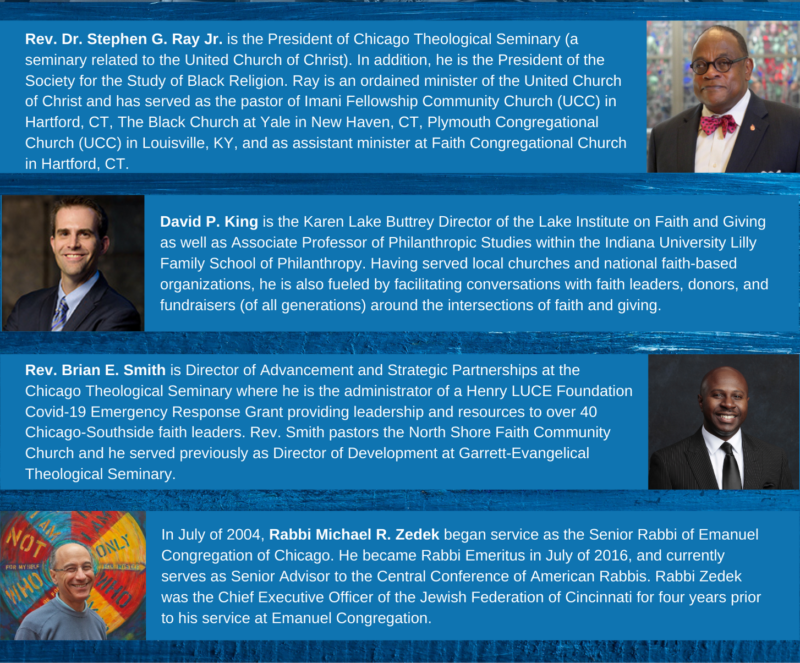On February 9, 2021, four scholars of religion joined the Christopher Family Foundation in the first of an occasional series of public conversations. This one was focused on the impact of COVID on faith institutions. As a funder that supports parachurch organizations such as religious schools, and institutions tied to the Lutheran liturgical tradition, we have been wondering how the congregations at the root of those organizations are faring.
We were able to gather Dr. Stephen Ray, President of Chicago Theological Seminary, Dr. David King, Karen Lake Buttrey Director of the Lake Institute on Faith and Giving as well as Associate Professor of Philanthropic Studies at the Indiana University Lily School of Philanthropy, Rev. Brian Smith, Director of Advancement and Strategic Partnerships at the Chicago Theological Seminary, and Rabbi Michael Zedek, Rabbi Emeritus of Emanuel Congregation, Chicago and Senior Advisor to the Central Conference of American Rabbis.
What we heard helped us to understand what is alike among many congregations navigating the last 12 months, and how some communities are affected particularly deeply. We heard from Dr. King, who has an ongoing survey taking the pulse of some 700 congregations nationally, that congregations are largely surviving their period of closure. Some are experiencing increases in attendance to their virtual worship, and some have even experienced higher levels of giving. While 40% have lost financial support, a worrisome statistic, the overall loss is in the area of 4.5%, so predictions of doom are probably unwarranted.
We also heard, from all our panelists, that issues of purpose and meaning are as important as they ever have been in these institutions. Making meaning, and finding vocations of meaning may feel more critical than ever, particularly among younger generations, as they watch their parents experience late-career instability in what were expected to be safe career paths. The last year has been disruptive, and it is causing a reckoning about what our lives are for.
We heard deeply also, primarily from Dr. Ray and Rev. Smith, about how the experience of COVID has fallen more heavily on the Black Church. Dr. Ray mentioned one church with which he has a historical affiliation that lost a pastor, an assistant pastor, multiple deacons and over a dozen members. That congregation may be solid in its building and secure financially, but after such deep trauma it will take time and focused therapeutic work before they are confident again in their own future.
And while congregations will need time, and the love and support of others, to recover from those deep experiences, compounded by a year in which racial division has been more visible than it has for many decades, our panelists also helped us to understand that the Black Church is also a holder of much of the earned wealth and granular knowledge of the communities in which it lives. For those of us whose work has us asking how to use funds to make life better and more fair for people, church leaders may be important allies.
Rabbi Zedek helped us to see that the implications of this time are much broader than any single faith tradition, and that as congregations return to a more in-person encounter, they may be focused much more on the “why” of their existence than on the familiar conversations of building maintenance. Whatever trends were underway prior to the pandemic have been accelerated, he believes. Both the consolidation of small congregations into large ones and the flourishing of small boutique congregations that have found a distinct way to minister to the hungers of the humans they serve.
While much too much was said to be well summarized, the full recording is available here. It has us thinking about the time after COVID, when our institutions do resume being together in real space. There will be opportunities, if we choose to look for them, for us to help one another.
This long period of pandemic suspended animation has robbed us of many things, including the ability to look forward to things. That new awakening, in which we turn more fully toward one another, is something to which we can unreservedly look forward. It is coming closer every day.
—Contributed by Clare Butterfield, Executive Director


 About Us
About Us Programs
Programs